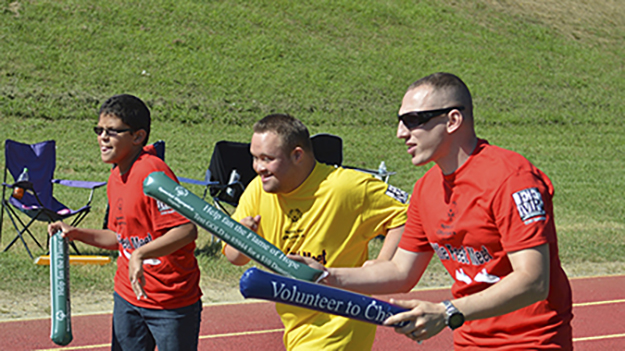All parents advocate - speak on behalf of their child - for their child's needs to teachers, doctors and others so their child can grow up happy and successful. Advocacy can include learning laws, finding resources and even representing your child to special program administrators, school boards and others.
When you are an effective advocate, you understand the policies and procedures and know who to turn to for support for your family. Here are some helpful tips to get started advocating for your military child with special needs.
GATHER INFORMATION AND GAIN KNOWLEDGE FOR MILITARY FAMILY SUPPORT
Knowledge is power. The more you know, the more you can find ways to help your child. Understanding your child's diagnosis and treatment options is only the start. Here's a list of need-to-know items to get you started:
- Your military child's rights to resources and education under federal and state law, including the Individuals With Disabilities Education Act, or IDEA and the Americans With Disabilities Act, or ADA. Learn the terms associated with special education.
- Your child's specific needs in the classroom and at home, because the more specific your requests for resources, the more your child's true needs can be met.
- Your child's future needs, including possible care as an adult with special needs. Planning ahead may help you navigate potential waitlists for services and financial costs.
- The resources and programs currently available in your community, especially in rural areas. Be sure to ask about eligibility, waitlists and referrals to other organizations that may provide similar services. It's better to find these sooner rather than later.
- The people in charge of your child's programs and resources, at school and in the broader community. Knowing who does what, at which program, helps you connect with the right people the first time, saving you precious time. Connect with these people.
Remember, good advocates learn how to work best with the system. You'll find your needs - and your child's - will more likely be met when you are assertive and factual in communicating both your feelings and your child's needs. Visit EFMP & Me to create customized checklists and view tips and resources to help you support your child with special needs.
KEEP RECORDS TO GET THE MILITARY FAMILY SUPPORT YOU NEED
Most parents keep their children's medical records out of habit. Keep official records on treatments that worked and didn't - so you can advocate for what works for your child at this duty station and the next. Successful advocates also have their child's behavioral and special education records, including any accommodations previously used and their effectiveness.
Additionally, take notes, keeping track of who you spoke to, when, as well as what was said. Whenever possible, send emails as a follow-up to people you speak to in person or over the phone. That way, you'll have a time-stamped paper trail in case someone forgets your conversation.
The Special Care Organizational Record can help you track and organize information in one central location. You can also share your SCOR with someone standing in for you so they'll have access to information at their fingertips.
DON'T TRY TO DO EVERYTHING BY YOURSELF
Advocating for your child with special needs doesn't have to be your job alone. National and local organizations are ready and waiting for you to find them with a quick internet search.
The Department of Defense also offers special programs like the Exceptional Family Member Program. EFMP Family Support providers at your installation can help you organize and plan for upcoming meetings or refer you to local resources.
Exceptional Family Member Program Resources Options and Consultations specialty consultants can connect you to free resources and specialists to ensure you get the help you need to be the best advocate for your child. Call Military OneSource at 800-342-9647 or use live chat to schedule an appointment with a special needs consultant. OCONUS/International? Go here for calling options. Appointments are available seven days a week.




Read Comments